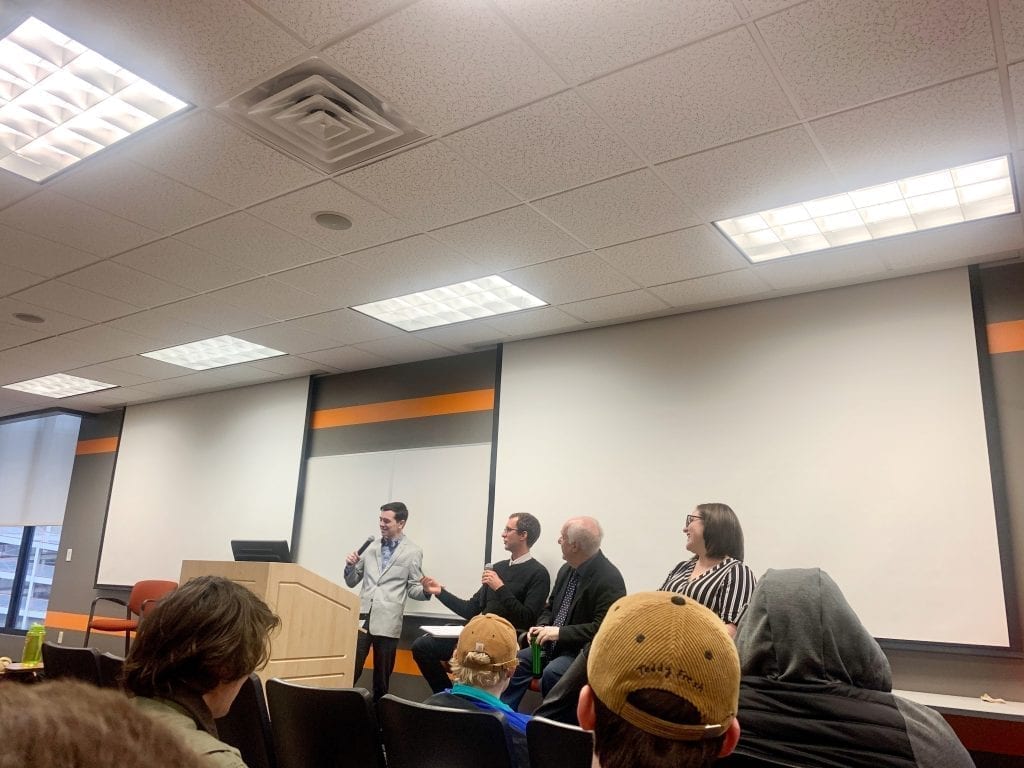UT Social Media Week: Learning how to navigate a world of misinformation, disinformation
UT dives into its ninth annual Social Media Week with a panelist discussion on misinformation and disinformation on social media.

On Feb. 18, UT students attended the first event of the ninth annual Social Media Week. The School of Journalism and Electronic Media hosted this session at the College of Communication and Information building on campus.
The first day in this series included a panel discussion about social media as a channel for misinformation and disinformation. Misinformation is false or inaccurate information, and disinformation is the intent to present misleading information. Both are prominent enough on social media that UT provides ways for students to recognize them.
Assistant professor Dr. Joy Jenkins was among the organizers for this event and provided insight as to why they chose this particular topic.
“It is one of the things that has just been so much in the discourse right now about fake news, misinformation, disinformation and a lot of people are really worried about it,” Jenkins said.
“There’s a lot of perceptions of the effects it had in 2016 and what that is going to look like for 2020. We wanted to give some practical information about what to do, how people can respond and how they can think critically.”
There were three panelists that gave presentations and advice on how to navigate the rising issue of fake news on social media platforms: University of Alabama Assistant professor Dr. Jessica Maddox, UT professor Dr. Mark Harmon and UT Postdoctoral Fellow Damian Ruck.
Ruck was the first to take the lead on the topic of discussion.
“Fake news is not new, and we are in a period of disinformation,” Ruck said.
Harmon also agreed with the importance and relevance of the topic.
“It’s important because young people are going to have to learn about the strengths and weaknesses of this medium, which they use so much,” Harmon said.
In addition, Harmon presented examples of sites where fake news is prevalent, such as The Epoch Times. He also presented sites like Snopes where people can fact-check any information put online. He went on to describe the positive elements that social media can offer but warned the audience to always fact-check information.
Maddox discussed the issues of deep fakes and photo manipulation online. She told the audience that photos and videos both have been able to misinform through apps creating deep fakes. She recommended the audience to always use “a healthy dose of skepticism” when navigating through information on social media.
WUOT National Public Radio Station of Knoxville News Director Brandon Hollingsworth led the Q&A portion of the event. He asked the panelists, “Do we need to stop misinformation or tell people to beware of it?”
All of the panelists agreed that holding events like Social Media Week can help people figure out answers to this question.
At the end of the event, Hollingsworth turned the Q&A portion to the students. Students asked questions about how they can see a positive change in the misinformation of social media. Maddox encouraged students to put pressure on social media platforms to make changes.
“We can see results through this because users are important to media sites,” Maddox said.
At the conclusion of the session, panelists reminded the audience to be openminded and wary when reading different media outlets.
Edited by Gracie-Lee Strange and Grace Goodacre
Featured image by Amber Scruggs

